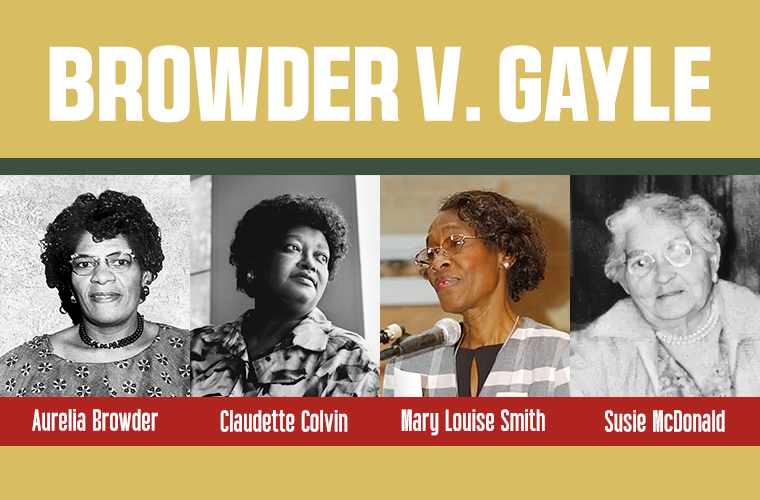Browder v. Gayle, 142 F. Supp. 707 (1956), was a landmark case in the civil rights movement in the United States. The case challenged the constitutionality of racial segregation on public buses in Montgomery, Alabama, and ultimately led to the desegregation of public transportation in the city.
The case was named after Aurelia S. Browder, Claudette Colvin, Susie McDonald, and Mary Louise Smith, four African American women who were plaintiffs in the lawsuit. The defendant in the case was W.A. Gayle, the mayor of Montgomery at the time. The lawsuit was filed in the United States District Court for the Middle District of Alabama, and the plaintiffs were represented by a legal team that included Fred Gray, a prominent civil rights attorney. The legal basis for the case was the Fourteenth Amendment to the United States Constitution, which guarantees equal protection under the law.
The case centered on the practice of racial segregation on public buses in Montgomery. Under the city’s segregation laws, African American passengers were required to sit at the back of the bus and give up their seats to white passengers if the front of the bus became full. The plaintiffs argued that this practice was unconstitutional and violated their rights as American citizens. On June 5, 1956, the district court issued a ruling in favor of the plaintiffs, declaring that racial segregation on public buses was unconstitutional. The court held that the practice violated the Fourteenth Amendment and ordered an end to segregation on Montgomery’s public buses.
The defendants appealed the decision to the United States Supreme Court, which upheld the district court’s ruling on December 17, 1956. The Supreme Court’s decision in Browder v. Gayle marked a significant victory for the civil rights movement and set an important precedent in the legal battle against racial segregation.
Following the Supreme Court’s decision, Montgomery’s public buses were officially desegregated on December 20, 1956. The successful outcome of Browder v. Gayle was a major milestone in the struggle for civil rights and inspired similar efforts to challenge segregation laws in other parts of the United States.
The case also had broader implications beyond the issue of bus segregation. It demonstrated the power of nonviolent resistance and legal action in challenging racial discrimination and paved the way for future civil rights victories.
In conclusion, Browder v. Gayle was a pivotal case in the history of the civil rights movement. Through their courageous stand against injustice, Aurelia S. Browder, Claudette Colvin, Susie McDonald, and Mary Louise Smith helped bring about lasting change and advance the cause of equality for all Americans. The legacy of Browder v. Gayle continues to resonate today as a testament to the power of individuals to make a difference in the pursuit of justice and civil rights.

